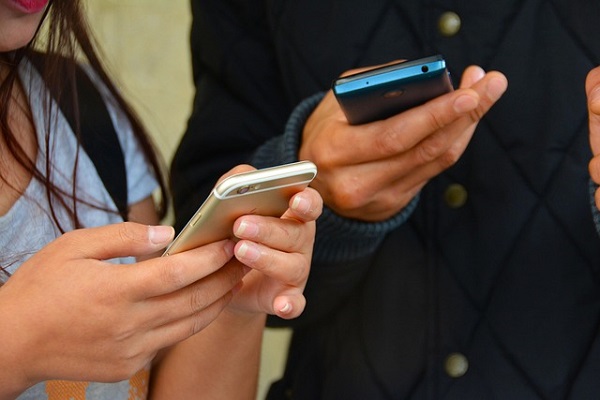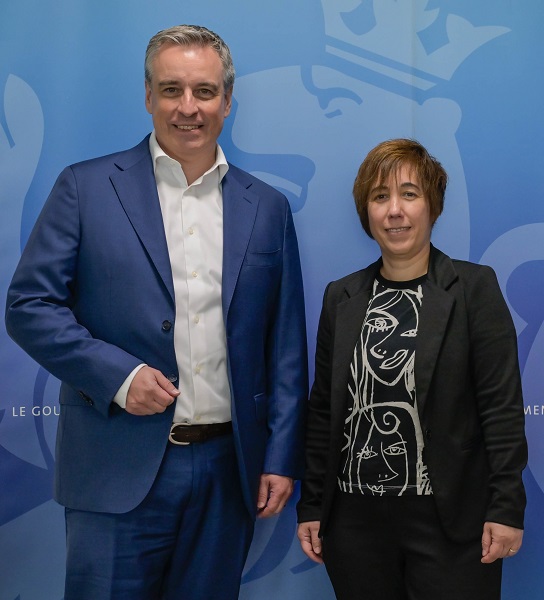 Credit: Pixabay
Credit: Pixabay
On Monday 19 May 2025, Luxembourg's Minister of Education, Children and Youth, Claude Meisch, presented new measures restricting the use of smartphones in secondary schools.
As reported by Luxembourg's Ministry of Education, Children and Youth, the negative effects of excessive exposure to screens and social media on the mental health, physical development and academic performance of children and young people are now widely documented. In response to this observation and to promote the well-being of all children and young people, the ministry consulted key education stakeholders and launched the "Screen-Life-Balance" campaign at the start of the 2024/2025 school year.
Following the entry into force on 22 April 2025 of the smartphone ban in primary schools and childcare structures, Minister Meisch presented new measures governing their use in secondary schools on Monday 19 May 2025.
"Smartphones are now omnipresent among many secondary school students: they impair their concentration and give them access to content that is not appropriate for their age. We have a shared responsibility towards young people and their healthy development. This is why, in recent months, the school community's mission has been to collectively consider how to permanently restrict smartphone use in secondary schools," the minister explained.
Since the start of the school year, secondary school communities have been discussing the topic of smartphones with the aim of limiting distractions, encouraging direct interaction between students and fostering involvement in school activities and community life.
The ministry confirmed that new rules regarding smartphone use will come into effect upon the resumption of classes after the Whitsun (Pentecost) break in all secondary schools on Monday 2 June 2025. Called upon by the ministry to choose from three levels of restriction, each school has established, in consultation with its school community, the specific terms of the new regulations to be implemented. The ministry added that these rules provide, at a minimum, for mandatory physical separation between students and their smartphones and other connected devices during classes. Six secondary schools are subject to this minimum level of regulation.
As part of their autonomy, secondary schools have had the option of going beyond the minimum level of restriction by defining additional restrictions according to local needs (age groups, time slots, specific areas, etc.). Most secondary schools (27/38) will restrict the use of digital devices in other areas (school cafeterias, documentation centres, community areas, etc.) or at certain times of the day.
Five secondary schools have opted for a strict ban on smartphones throughout the school day, meaning students drop off their devices in the morning and pick them up at the end of class.
Regulations beyond the minimum restriction level will be implemented gradually starting 2 June.
The ministry confirmed that, in addition to regulating the use of personal devices, technical measures will also be gradually strengthened from this date.
To better protect students from exposure to inappropriate or even dangerous content, security measures for internal educational networks (WiFi and wired) have been reinforced. Furthermore, access to the eduroam WiFi network will be restricted to students aged fifteen and over, within school grounds.
The ministry acknowledged that iPads remain a central work tool for secondary school students, who must be prepared for digital environments and supported in the gradual acquisition of their digital maturity. However, iPad access will be more strictly regulated for lower-level students who have not yet reached so-called digital maturity. This measure will be phased in starting from the 2025/2026 school year. The new iShare (occasional, shared use of iPads within a class or group of students) and iClass (full integration of iPads within a class for daily educational use) models are aimed at lower-level students, and access and content are controlled by a centralised management system.
The myDevice model (personal allocation of an iPad) is reserved for upper-level students. The level of restrictions applied via the management system is more flexible, but the device will remain integrated into the school ecosystem. These models will gradually replace the one2one model starting in the 2025/2026 academic year.
According to the Education Ministry, "all of these measures are part of a coherent strategy aimed at empowering students with digital tools and benefiting from the educational use of new technologies, while protecting them from excessive use". The ministry added that it "intends to promote a school climate conducive to learning and well-being while preparing young people for informed digital citizenship".

(L-R: Claude Meisch, Luxembourg's Minister of Education, Children and Youth; Cynthia Recht, President of the College of Directors of Secondary Education; Credit: MENJE)








